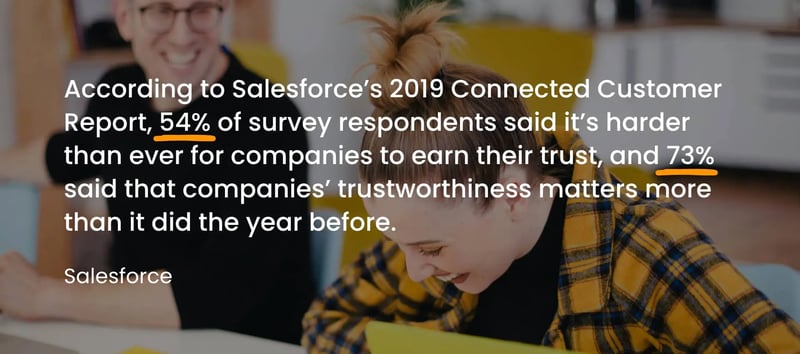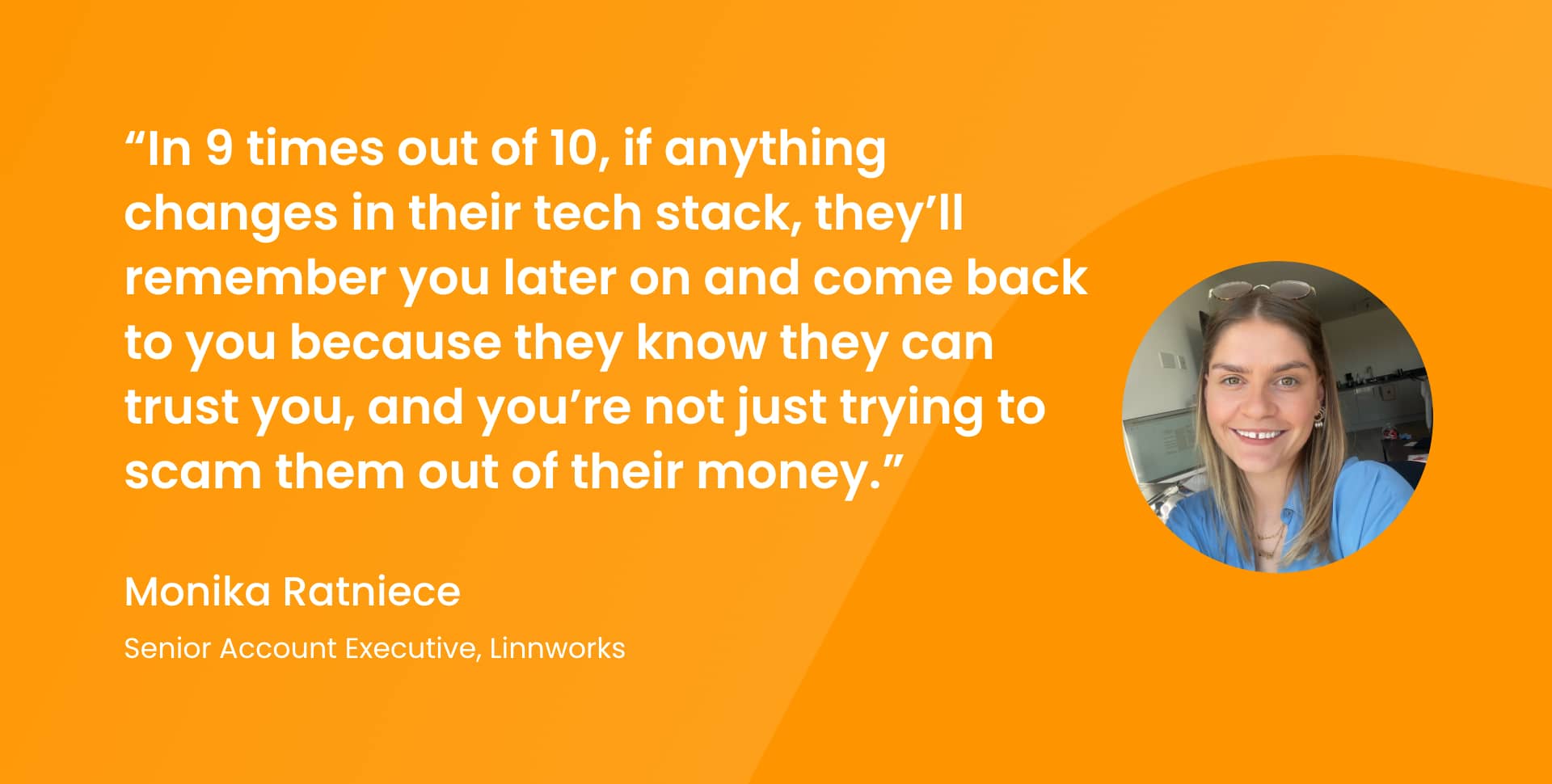B2B buyers today are better informed and more demanding than ever before. They identify their own problems, explore their options, build requirements, and compare solutions on their own terms digitally before even getting in touch with a sales rep.
According to Salesforce’s 2019 Connected Customer Report, 54% of survey respondents said it’s harder than ever for companies to earn their trust, and 73% said that companies’ trustworthiness matters more than it did the year before. However, TrustRadius’ research indicates that vendors and buyers are out of sync: 87% of vendors believe they are transparent about their products’ limitations, but only 38% agree.
In short, buyers are skeptical; therefore, education and building trust are critical.

Patience and persistence
Salespeople know that buyers are far more informed, yet they still often think that they’re the ones informing them. Persuasion and sales expert Moeed Amin suggests that we need to be smarter and more thoughtful about informing buyers based on how they educate themselves. B2B sellers need to know what their buyers value, what they want and how they communicate.
Buyers take their time educating themselves and others (the average buyer uses 6.9 information sources to make a purchase decision). You need to be patient even though patience isn’t a traditional part of the sales mindset.
The buyer’s journey will tell you the level of education during the process. You need to find out:
- When buyers are educating themselves
- Who within the team needs to be won over
- What and who are their trusted sources of education
- What they’re looking for in terms of education around a product or solution
Shift focus from ‘me’ to ‘you’
You shouldn’t be using your gut instinct when it comes to your buyers’ preferences.
Moeed argues that talking about yourself and your company instantly breaks trust because it seems like you’re only interested in yourself. If you start throwing around random statistics about what you’re selling, buyers won’t care.
Buyers value those sellers who understand their industry. Many businesses don’t know their potential customers and are just generalizing. Share content specific to the buyer’s industry and explain why you want to talk to them. And one of the easiest ways is to create an online community either on Facebook groups, Slack, LinkedIn groups, or even on your own platform like Circle and many more.
You need to shift focus from ‘me’ to ‘you’ by making your great idea the prospect’s great idea.
Buyers don’t necessarily care about your perspective or the companies you’ve helped previously. Most buyers think that their business is genuinely unique. So just because you’ve helped one of their competitors, it doesn’t mean that they’re going to be interested. That’s just your perspective, right? They’re probably trying hard to do something much better than their competitors.
Support the buyer’s journey
When buyers are looking for additional information about the product they can’t find online, it’s the sales rep’s time to shine.
Monika Ratniece (Senior Account Executive, Linnworks) recommends sending sales collateral, even if the buyer is not ready to purchase yet.
Sales content helps your buyers better understand what your company does and how they could benefit from your services. If you ever come across something, be it a helpful article or a LinkedIn post, it doesn’t matter if it won’t help you close a deal straight away, send it to your prospects. They will appreciate it because you thought of them.
You decided to help a person, even though they’re not giving you their money right now. It enables you to build trust, even if it’s not the right timing for them.
Being transparent and trustworthy during the buyer’s journey is super important. If you can’t support a buyer’s requirement or feel like you can’t deliver what they need, it’s better to admit that it’s not going to work early on.
This will be more beneficial in the long run because they’ll know that you’re not just trying to lure them into buying.

Solving problems while staying motivated
It’s a fairly common problem that your work as a salesperson becomes routine and monotonous, and there’s a lack of motivation.
When that happens, Monika advises to slow down and remember why you’re doing what you’re doing and why your company is doing what they’re doing.
It doesn’t matter what software or service you’re selling.
You’re trying to solve someone’s pain.
Sometimes this pain can be life-changing, and you’re the one who helps them solve it. Just remember who’s on the other side of that video or phone call, and focus on the human factor.
When you know the product you’re selling, it’s not always easy to focus on the buyer’s pain properly — but knowing and understanding that pain will help you close the deal and understand the customer a lot better.
At the end of the day, you’ll feel like you’ve helped someone, and that’s a great feeling.




